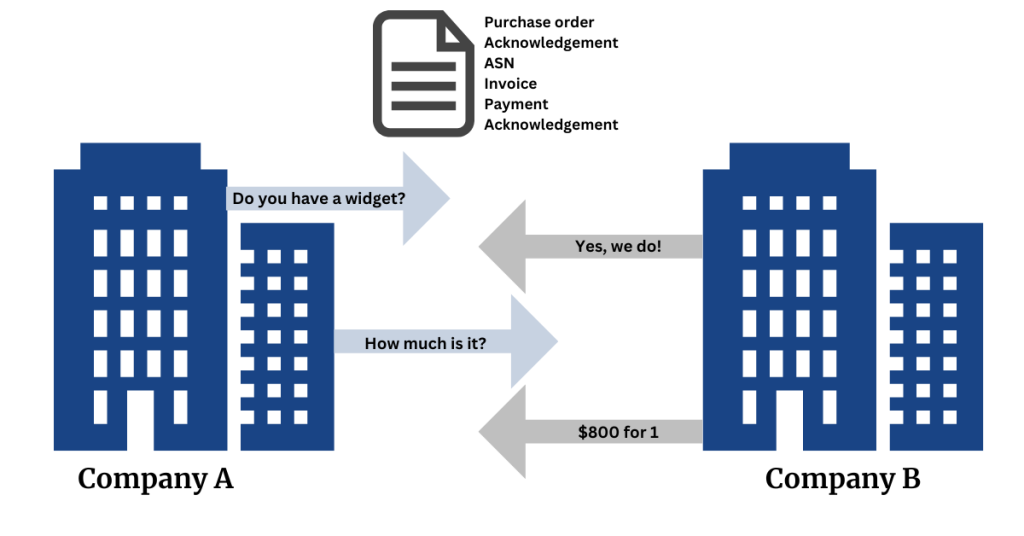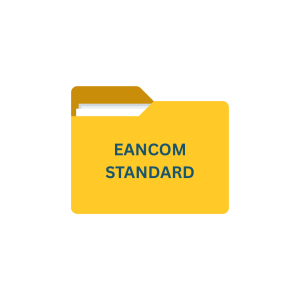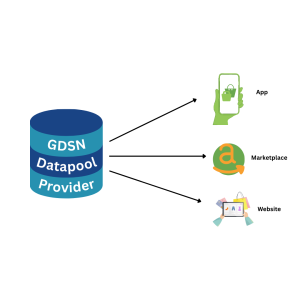Introduction
Electronic Data Interchange (EDI) has been around for quite some time now. It’s a technology that has been in use since the 1970s, and it continues to play an important role in today’s digital age. EDI is a way for businesses to exchange information electronically in a standardized format with each other, rather than using paper-based systems. Businesses can send and receive documents such as purchase orders, invoices, and shipping notices electronically in a standardized format.
EDI works by using a set of standards and protocols that ensure the secure and efficient exchange of information between different computer systems. This can help to reduce errors, improve efficiency, and save time and money for businesses.
The perks of using an EDI system within a business environment are,
- Reduced costs
- Automated workflows
- Faster document translation and transmission
- Reduced manual data entry errors
- Better relationships with trading partners and customers
Key Takeaways
- EDI (Electronic Data Interchange) automates the exchange of business documents, reducing manual effort and errors.
- It improves operational efficiency by streamlining processes like order management, invoicing, and inventory tracking.
- EDI ensures compliance with trading partner requirements, fostering stronger business relationships.
- It enhances data accuracy and accelerates transaction speeds, leading to cost savings and better decision-making.
- Adopting EDI helps businesses stay competitive by supporting seamless supply chain communication.
History of EDI
EDI was first developed in the 1960s by the US Transportation Industry, to automate processes and improve efficiencies. It gained widespread use in the 1970s, as other industries began to adopt it. EDI has continued to evolve over the years, with new standards and technologies being developed to make it even more efficient.
What is EDI?
EDI is a system used for exchanging business documents electronically between trading partners in a standardized and universally accepted format. This can include invoices, purchase orders, shipment notices, and other important documents. Rather than sending these documents via mail or email, EDI allows businesses to exchange them in a standardized electronic format. This makes it easier for businesses to automate their processes and improve their overall efficiency.

Why EDI is important for your businesses today?

1. Globalization
The entire world is working towards a globalized economy, businesses need to be able to exchange information with partners and suppliers around the world and EDI provides a standardized way to exchange information electronically, regardless of location or time zone. This makes it easier for businesses to collaborate with partners and suppliers on a global scale.
2. Competitive Advantage
In today’s competitive business environment, companies need to find ways to differentiate themselves from their competitors. Implementing EDI can give businesses a competitive advantage by improving their efficiency, reducing costs, and improving their responsiveness to customers.
3. Regulatory Compliance
Many industries are subject to regulations that require them to exchange information electronically. EDI provides a way for businesses to comply with these regulations, while also improving their efficiency and reducing costs.
4. Sustainability
As businesses become more environmentally conscious, they are looking for ways to reduce their paper usage and carbon footprint. EDI provides a way to exchange information electronically, reducing the need for paper-based systems and reducing the environmental impact of business operations.
5. Improved Relationships
EDI can help businesses build stronger relationships with their partners and suppliers. By automating processes and reducing errors, EDI can improve the accuracy and speed of information exchange. This can lead to improved communication and collaboration between business partners, leading to stronger relationships and increased trust.
Benefits of EDI
1. Increased Efficiency
One of the main benefits of EDI is increased efficiency. By exchanging documents electronically, businesses can automate many of their processes, saving time and reducing errors. For example, rather than manually entering data from an invoice into a system, EDI can automatically populate the data, saving time and reducing the risk of errors.
2. Improved Accuracy
EDI can help businesses improve the accuracy of their data. By automating processes, businesses can reduce the risk of errors caused by manual data entry. Additionally, EDI can help businesses ensure that the information they receive from their partners is accurate and up to date.
3. Faster Processing
EDI can also help businesses process documents more quickly. Rather than waiting for a paper document to arrive in the mail, EDI allows businesses to receive documents electronically in real-time. This can help businesses reduce lead times and improve their overall responsiveness.
4. Cost Savings
EDI can help businesses save money. By automating processes, businesses can reduce the amount of time and resources needed to complete tasks. This can lead to lower labor costs and increased productivity. Additionally, EDI can help businesses reduce the costs associated with paper-based systems, such as printing, mailing, and storage.
Examples of EDI in action
The EDI system is used across many industries ranging from retail, healthcare, logistics, eCommerce, banking, automobile, manufacturing, and many more. Here are some examples of how EDI systems are deployed in a few industries,
- Retail Industry
In the retail industry, EDI in retail is used to exchange information between suppliers and retailers. This can include purchase orders, invoices, and shipment notices. By using EDI, retailers can automate their processes, reducing the time and resources needed to manage their supply chain.
2. Healthcare Industry
In the healthcare industry, EDI in healthcare is used to exchange patient information between healthcare providers. This can include patient records, insurance claims, and payment information. By using EDI, healthcare providers can improve their efficiency and reduce errors caused by manual data entry.
3. Manufacturing Industry
In the manufacturing industry, EDI is used to exchange information between suppliers and manufacturers. This can include purchase orders, invoices, and shipment notices. By using EDI, manufacturers can automate their processes, reducing the time and resources needed to manage their supply chain.
How to implement EDI into your business process
Implementing EDI in your business can seem daunting, but it doesn’t have to be. The first step is to assess your current processes and identify areas where EDI could be beneficial.
Next, you’ll need to choose an EDI provider and set up the necessary software and hardware. It’s important to ensure that your EDI system is compatible with your existing systems and that your staff are trained in how to use it.
Finally, you’ll need to test your EDI system to ensure that it’s working correctly and that you’re getting the expected benefits. With the right planning and support, implementing EDI can be a smooth and successful process for your business.
Common EDI standards and protocols
There are several common EDI standards and protocols that businesses use to exchange electronic documents. Some of the most widely used standards include
- ANSI X12
- UN/EDIFACT
- TRADACOMS and more
These standards define the structure and format of electronic documents, ensuring that they can be exchanged between different systems and organizations. In addition to these standards, there are also several protocols that businesses use to transmit EDI documents, such as AS2, FTP, and VAN. Understanding these standards and protocols is essential for businesses that want to implement EDI successfully.
Conclusion
Today EDI is used by businesses of all sizes. By automating processes and exchanging information electronically, businesses can improve their efficiency, reduce costs, and improve the accuracy of their data. EDI has been around for decades, and it continues to play an important role in today’s digital age. If you haven’t already, it’s time to consider implementing EDI in your business to stay competitive in today’s fast-paced business environment.
EDI is becoming more accessible and affordable for businesses of all sizes. In addition, the rise of cloud-based EDI solutions is making it easier for businesses to implement and manage EDI without the need for expensive hardware or software. As more businesses adopt EDI, we can expect to see increased efficiency, cost savings, and improved customer satisfaction.
Commport EDI Solutions
(No matter what you do. Commport has a solution to streamline it.)
Integrated EDI
Integrated EDI facilitates efficient data exchange, enabling businesses to effectively collaborate with partners and automate critical business processes.
Cloud Based EDI
With our Cloud EDI, all you need is an Internet connection and a web browser. No complex installations or costly infrastructure
EDI Outsourcing
EDI outsourcing is the process of having a 3rd party company like Commport manage a part or the entire process of EDI to exchange data with trading partners
Ready to find out more about Commport EDI Solutions
Download: EDI Buyers Guide
Unlock the full potential of your supply chain with our comprehensive EDI Buyer's Guide — your first step towards seamless, efficient, and error-free transactions
Frequently Asked Questions
Electronic Data Interchange (EDI) is a standardized electronic communication method used for exchanging business documents between different companies. Implementing EDI in your business streamlines the exchange of crucial information like purchase orders and invoices. This not only reduces manual data entry errors but also accelerates transaction processing, enhancing overall efficiency and collaboration between trading partners.
EDI eliminates the need for manual data entry and paper-based processes. By automating the exchange of business documents, EDI reduces the costs associated with printing, mailing, and manual data entry errors. This streamlined approach enhances accuracy, minimizes the risk of human errors, and ultimately leads to significant cost savings for your business in the long run.
Absolutely. Implementing EDI enables businesses to respond more swiftly to market demands and changing conditions. The efficiency gained through automated processes allows for quicker order fulfillment, reduced lead times, and improved customer satisfaction. This enhanced agility positions your business as more competitive in the market, meeting customer expectations and staying ahead of industry trends.
EDI is not exclusive to large enterprises; it offers advantages for businesses of all sizes. Small businesses benefit from the same efficiency gains and cost savings as larger counterparts. EDI levels the playing field by providing smaller enterprises the tools to compete effectively, streamline operations, and foster smoother collaborations with partners, suppliers, and customers.
EDI systems employ robust encryption methods and secure communication protocols, ensuring the confidentiality and integrity of transmitted data. This not only safeguards sensitive business information but also helps businesses comply with various data security regulations. Implementing EDI demonstrates a commitment to data security and compliance, building trust among partners and customers and mitigating the risks associated with data breaches and non-compliance.





